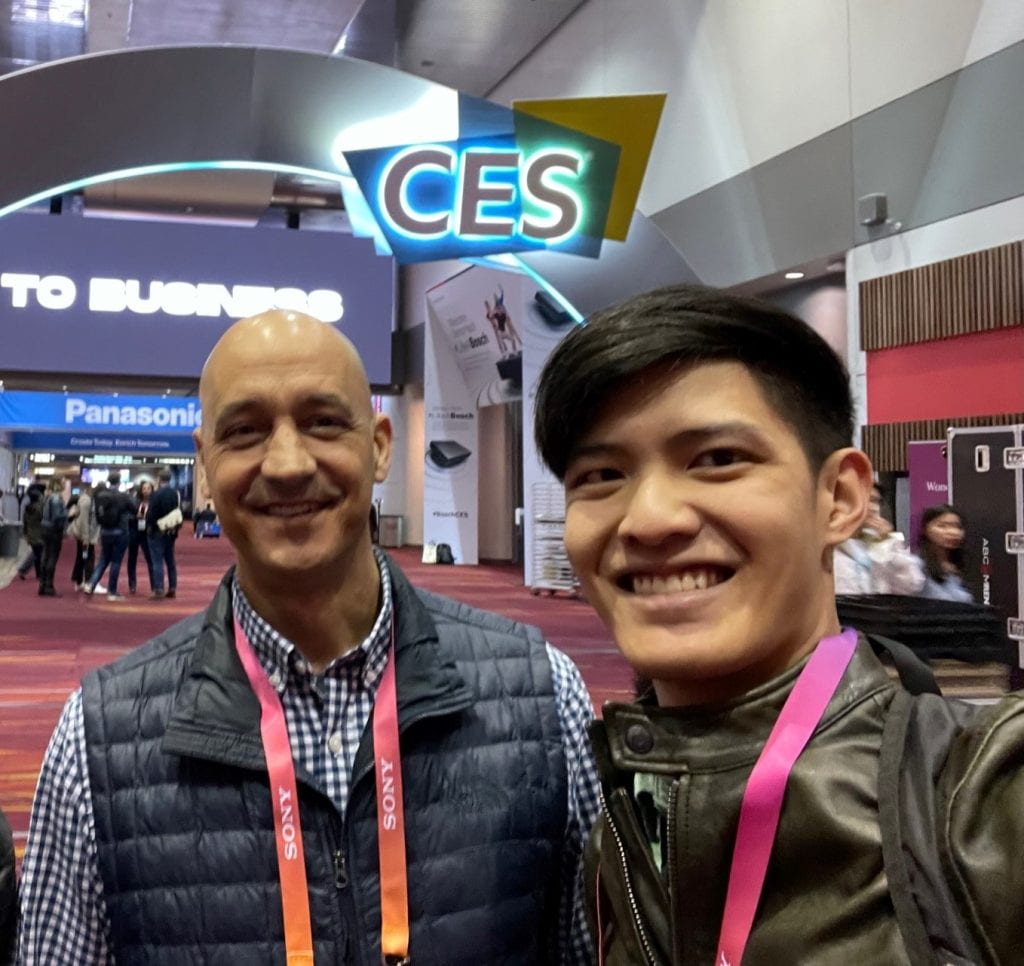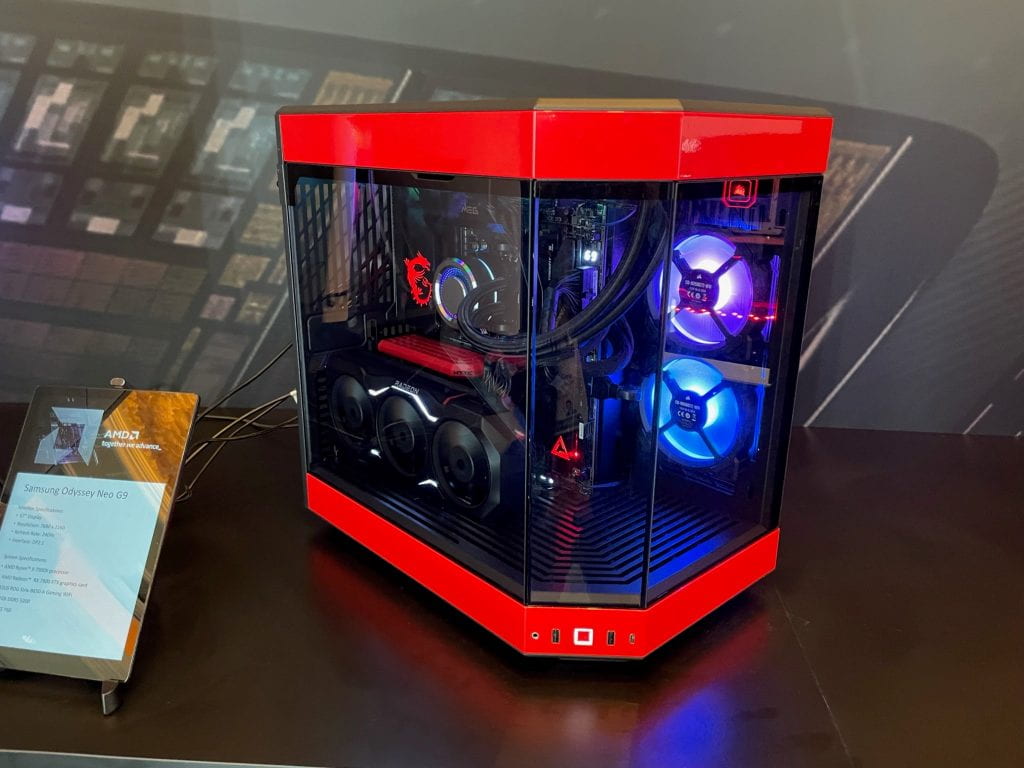From Sony to Samsung, LG to Amazon, Tesla to BMW, and more, companies introduced the latest and greatest emerging tech trends during the recent Annual Consumer Electronics Show in Las Vegas.
Tech Den and Student Technology Services (STS) managers, Peeti Sithiyopasakul and Scott Markovich returned to WashU with insights into what is new and exciting, and how tech trends can enhance student learning.
Advances in 3D printing showcased through demonstrations, and an exploration of Metaverse enhancements captured the attention of thousands throughout the weeklong conference. Augmented reality (AR) and virtual reality (VR) trends will focus on heightening the virtual world experience for consumers and potentially leading to greater experiential learning opportunities.
“Upcoming AR and VR developments are helping lower the barrier for use while increasing the immersive experience of AR and VR,” Markovich said. “During the conference, we saw several innovative applications of AR and VR technologies in the educational space. One example was a demo integrating augmented reality to chemistry labs, where students can see additional safety and educational information overlayed when mixing chemicals.”
Another example involved students using collaborative space in the metaverse to work on group projects. This allowed them to return to notes and whiteboard kept between sessions.
Panelists presented trends for TV streaming services discussing how companies will work together to bundle apps and content and merge studios under one umbrella. This will facilitate scaling back the number of subscriptions consumers will need to buy.
A moment of silence was observed to recognize the death of dongles, the adapters plugged into so many devices. Moving forward, instead of using dongles, electronics manufacturers will integrate embedded operating systems (OS). The implications of this on gaming was a hot topic of discussion. Consumers will have the ability to launch game stores directly from their TV, in the way games can now be downloaded on their phone. The evolution of gameplay will involve more physical interaction, as an alternative to gaming consoles.
“This is an alternative way for consumers to engage in gaming entertainment,” Markovich said.
The current landscape of the competitive world of gaming captured the audience’s attention, with an emphasis placed on the ever-expanding platform of Esports. Short for electronic sports, Esports depend on monitors, power gaming machines, and more. The relevance of this form of tech across university campuses is undeniable.
“There are many Universities across the country that have school-sponsored Esports teams and many, like Wash U, have Esports clubs,” Sithiyopasakul said, adding recently there have been conversations about WashU joining a school-sponsored Esports competitive team.
“The existing eSports club has several teams that already compete in regional and national competitions,” Sithiyopasakul noted. “Involving console and mobile gaming along with PC gaming can help diversity the reach across an even larger section of the student body.
Esports has the potential to build a sense of campus community and can help students make industry connections, improving job prospects.





